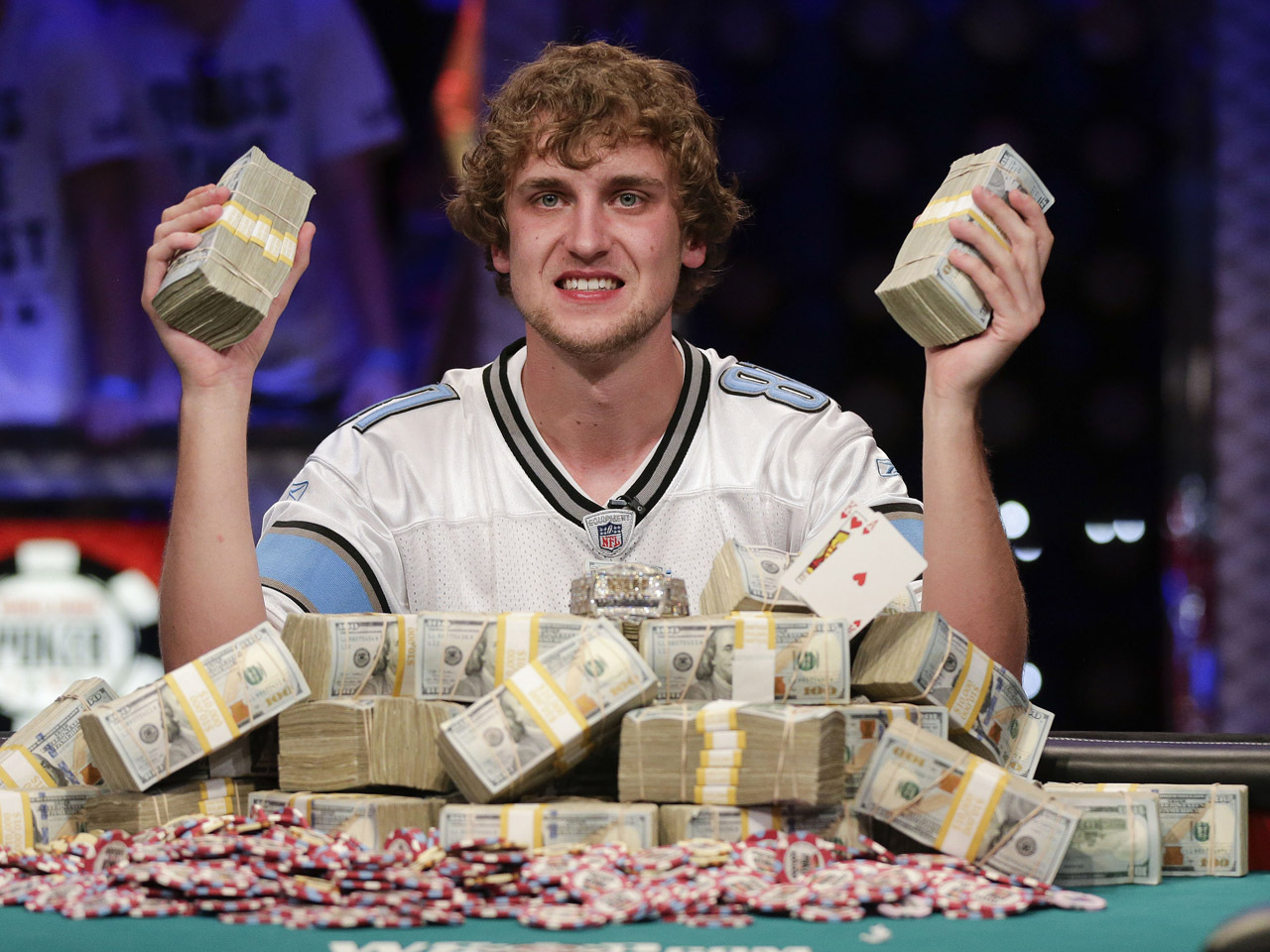Ryan Riess
Outcome

Ryan Riess Engineering Manager at Farnsworth Group, Inc. Louis Area Civil Engineering. The latest tweets from @RyanRiess1.
Ryan Riess School
Preflop, with eight players remaining and blinds of 175,000-350,000 and an ante of 43,750, Ryan Riess raised to 735,000 from the hijack. Joao Maureli called from the big blind. On the flop Maureli checked. Riess checked. On the turn Maureli bet 1,500,000. Riess called. On the river Maureli checked. Riess moved all-in for 4,300,000. Maureli called.
Analysis
Ryan Riess got off to a rough start at the final table of the 2020 World Poker Tour World Championship $3,200 knockout no-limit hold’em event. The 2013 World Series of Poker main event winner ran ace-king into the pocket aces of Pedro Marques to fall to the bottom of the leaderboard. He found a quick double up with pocket tens to get back to around 19 big blinds. The very next hand after doubling, Riess picked up Q-J suited in the hijack and raised. It folded to chip leader João Maureli and he defended his big blind with the lowly 9-6 offsuit. Maureli flopped top two pair and checked to Riess, who had flopped a queen-high flush draw. Riess opted not to semi-bluff his hand with a continuation bet and instead checked behind. The turn gave him top pair to go along with his flush draw. Maureli bet three-quarters of the size of the pot and Riess had an interesting decision. With a pair and a flush draw, many players would likely opt to just shove all-in and let the chips fall as they may. Riess ultimately took a different approach, though. He had a $10,031 bounty on his head, the fifth largest bounty at the table, which would likely result in opponents being more likely to call his all-ins lighter. Riess likely also considered that short stack Shyngis Satubayev had only 8 big blinds when this hand began, which might have led him to utilize a more cautious approach to limit the likelihood of busting before Satubayev. Riess just called Maureli’s bet on the turn and the river completed his flush draw. Maureli now checked to Riess, who had 4.3 million left in his stack with 5 million in the pot. He moved all-in and Maureli made the call with his nines and sixes. Riess doubled up for the second time in as many hands and chipped up to just shy of 40 big blinds, which put him in fourth chip position. Riess ended up finishing seventh in this event, earning $48,261 for his deep run.
Earlier this week, 2005 WSOP Main Event champ Joe Hachem discussed the current state of poker during the Aussie Millions. And what he had to say about poker wasn’t exactly glowing.
After reflecting on past WSOP Main Event winners, which included ripping on Jamie Gold and Jerry Yang for ruining the champions’ legacy, he expressed his opinion that “poker is dying.” The reason why he believes this? Because Hachem thinks that the game is no longer fun for amateurs, with “young geniuses” bumhunting all of the fish and not offering up any interesting conversation.
The Aussie also mentioned how there are less Antonio Esfandiari’s out there, or rather guys whom the fish love to play with, even when they’re losing money. He added that watching poker on television is “like watching paint dry” because of the lack of personalities today. Furthermore, poker TV shows no longer focus on a pro’s style, personality or what they’re like away from the table. He closed by saying that some of the young ME champs like Ryan Riess and Greg Merson need to think about all of this since they’re ambassadors to the game.
So is Hachem right about everything that he said? You can’t argue with the point that poker is full of bumhunters these days, who play seek and destroy with the fish. The game also features less dynamic grinders who make poker more enjoyable to watch on TV.
Ryan Reise
But on the other hand, nothing Hachem said is an original idea. He’s just another person to jump on the fact that poker has transitioned into a more strategy-focused, mathematical game, where you either pour hours into becoming great, or you lose your bankroll and dignity.
Live With Ryan Ries
As for if poker is dying, well, global online numbers suggest that plenty of people are still interested in playing. And this should continue as new markets open up across the world. But the live realm is still a big part of poker, and if famous pros don’t start developing some personality and social skills at the table, it will eventually hamper online poker too.



